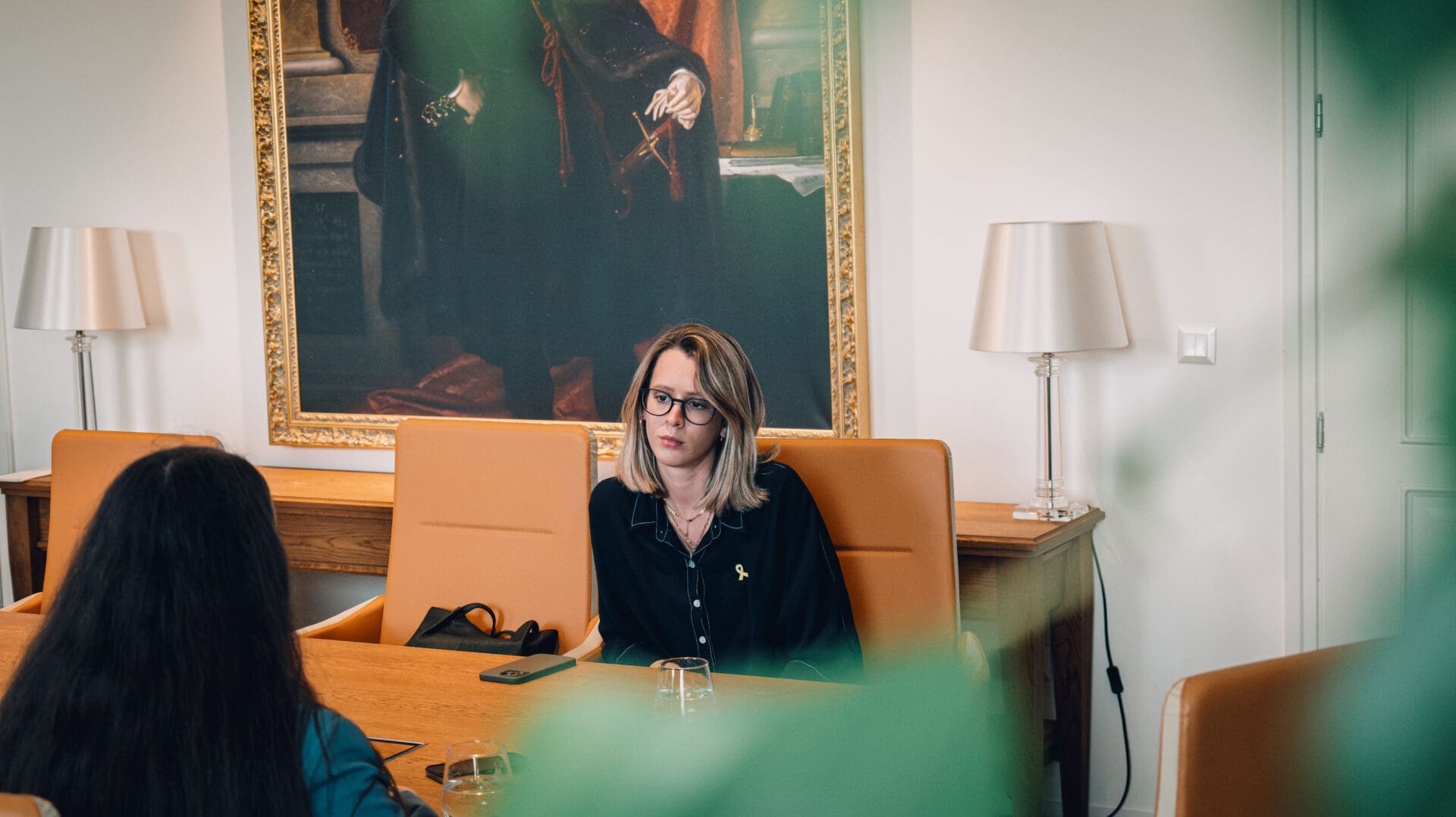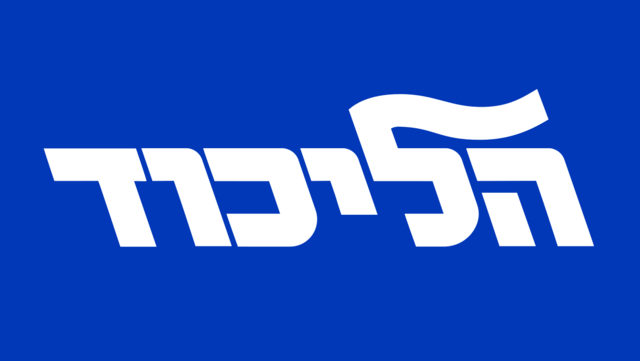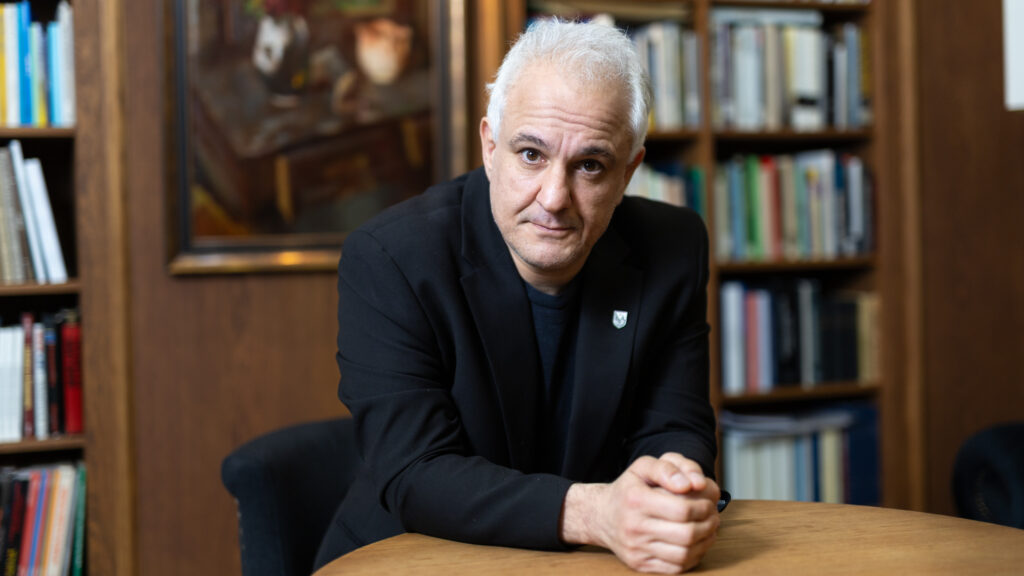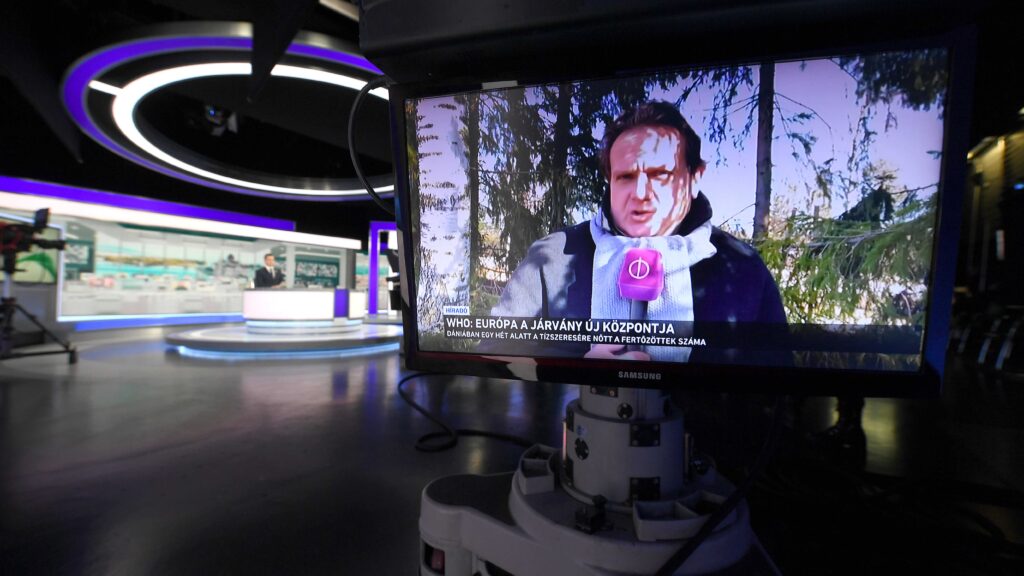On 21 May the Danube Institute organized an event titled Sexual Violence in Israel and Gaza on October 7 and Beyond: Impact, Denial and Silence. Nicki, a Staff Sergeant of IDF Spokesperson’s Unit was one of the invited speakers. In an interview recorded after the event, we asked her, among other things, about the role of women in the IDF, the difficulty of fighting misinformation about the Israel–Hamas war, and her opinion about the attempted sabotaging of the Danube Institute roundtable by pro-Palestinian activists.
***
Could you tell our readers about the role of the Israel Defense Forces (IDF) Spokesperson’s Unit in telling the IDF’s story to the world and your role in it?
The spokespersons unit has several roles. First, it has a role in the Israeli media, where we address internal issues to Israelis. The second is to speak to the world and create legitimacy for our actions, and freedom of action. The third is to be transparent and provide the public with what’s going on in the military. I’m in the international sector of the IDF spokesperson’s unit, and in my service, I worked with different media outlets. In the beginning, I worked with the British press, and then later on, I worked with several other countries’ media outlets. With time in the army, I gained more and more responsibility, and today, I’m the deputy of the International Spokesperson and in charge of broader projects for the unit and media. In the international section, we work with news outlets worldwide, providing them with day-to-day information about what’s happening in the IDF and security-wise in Israel and the Middle East. We also create opportunities for journalists to write stories related to the IDF, so if there’s a request from a journalist, our initiative is to try to put things up front and raise important issues and areas in the army that are not getting enough attention.
Before discussing 7 October and the Israel–Hamas war, I would like to ask about the role of women in the IDF. In Western countries, mandatory serving in the army isn’t common, especially for women. Could you discuss the role of women in the IDF and how 7 October impacted women’s combat role in the army?
The IDF is very up-to-date with women’s recruitment and progressive in that area. Most positions are open for women, too, and just a few combat positions aren’t open. However, it’s also being thought about all the time about how to open these combat positions, and there are combat units with women and males serving in the same unit. I think that as a woman in Israel when you get to the time of your service, you don’t feel like you lack opportunities, which is something that I can’t say about many other different sectors. But I do think that even in a room full of men, you can speak out as a woman.
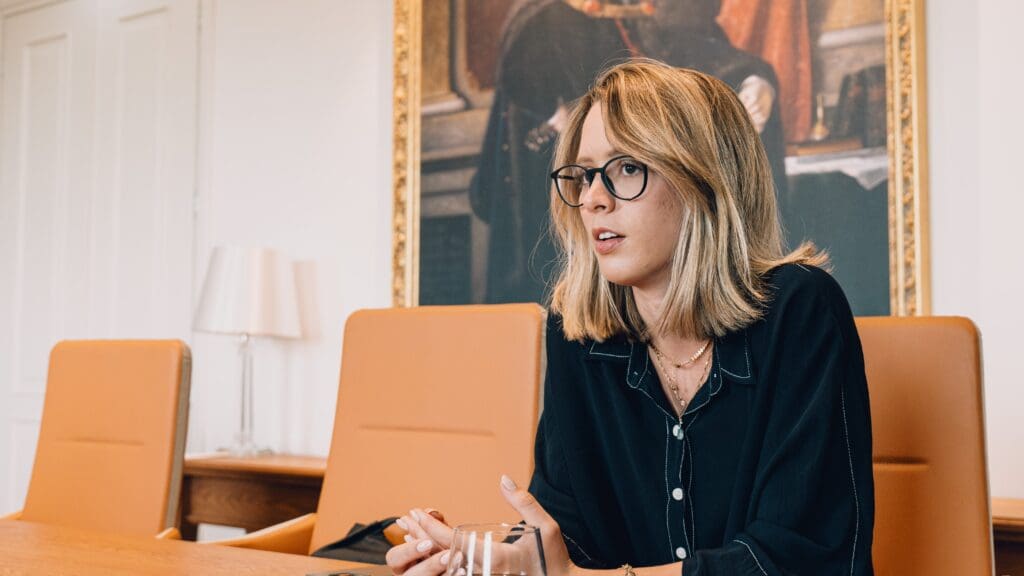
On 7 October, we had a few women battalions that were first responders, and in one of the kibbutzim, the head of the civilian security unit was a civilian woman, and she fought dozens of terrorists. Stories like that and stories about the women’s battalions that participated and were first responders on 7 October mark the first time women have actively participated in immediate defence against such a threat. They have encountered many threats before, but not on that scale. Later on, not only on 7 October but in the war as well, we’re also seeing female paramedics, doctors, and psychologists serving in Gaza. I was amazed a couple of months ago when I heard how many women soldiers, including some of my friends, serve in the Gaza Strip as part of their job. I think it’s good for the world and all of us to have opportunities for women in combat positions. The IDF sees great importance in it, and it has a lot of different units and positions whose primary role is to deal with how to incorporate women into the military system.
Could you walk our readers through what 7 October, with the horrible atrocities of murdering Israelis and the sexual violence, meant to you as an Israeli woman, and what your role in the IDF was that day?
If I have to summarize it, I can tell you that I was woken up at 7 a.m. with initial notifications of rockets in Israel, which was, unfortunately, something that we’re used to. Then notifications came in of infiltration of terrorists into Israel, and that’s something we’re not used to, so we understood that there was something bigger than what we expected. I felt as if it would end very quickly, that it would be just a few rogue terrorists trying to enter, and that someone would stop them, and then it would end. Then I heard reports saying that they got to the Nova festival, and at the time, I had a lot of friends there as well. From then on, I I have been thinking about them, trying to look for their faces on Facebook and Instagram. There were so many missing people in those days and so much uncertainty, and you really had no way to contact those people to know if they were dead or alive. Slowly, throughout the day, I got more and more signs of life, though some I didn’t hear back from. I think that day, military-wise as well, was shocking.
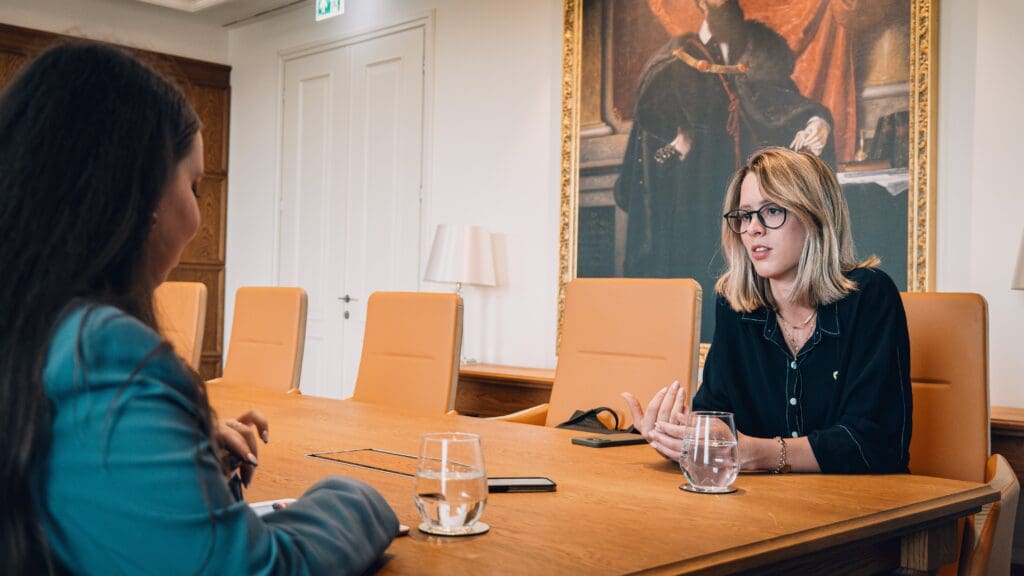
Then we got to understand that there was a war starting, and we were getting our personnel ready. We needed to prepare quickly, so there was a shift in our mindset. I think that as a country and as a state, it’s something that we haven’t healed from ever since. It’s something that we’re still dealing with because the war is still ongoing, and we’re still losing people on the battlefield and hearing more and more stories from 7 October. It’s something that you can’t heal from until you know that the threat has gone away.
Recently we had a chance to have a podcast discussion with Lieutenant Colonel Nadav Shoshani, the IDF’s International Spokesperson. He explained the difficult position of the spokesperson unit in the information war against Hamas in telling the IDF’s story to the world. Could you elaborate on these difficulties?
I think that the most challenging thing that has happened in recent years is the development of technology and social media and its effect on people. Before these times, for example, anything was going out to the public through the news. However, these days, anyone can be a reporter holding their phone and telling their own story. When you’re battling so many false narratives and trying to spread the truth, it’s very difficult to pinpoint each and every one of the false narratives and show why they’re false or not entirely correct. I also think it’s very complex; it’s not black or white, and explaining the middle ground and the grey zone is very difficult. That’s the main problem we encounter in my view.
A common accusation against the IDF in its war against Hamas in Gaza is the large number of civilian casualties and that the Israeli army deprives humanitarian aid from Gazans. Lieutenant Colonel Shoshani told us a recent story of how Hamas attacked the Kerem Shalom crossing, where the IDF sent thousands of humanitarian trucks to Gaza. Could you react to these accusations, and why is it that even the Western world either doesn’t know anything about the humanitarian help of the IDF or is reluctant to believe it?
First, it’s important to understand that our war is against Hamas, and part of that is very difficult because Hamas is embedding itself in civilian areas. So, speaking of the death toll or the effect on the civilian population, I think that it’s devastating and a tragedy to hear stories of civilians who are harmed by this conflict on both sides.
But it’s really important to understand that we’re not operating military to military with ground rules, we are not fighting soldiers in uniforms
as these terrorists are not wearing uniforms and are embedding themselves in schools, hospitals, public areas, kindergartens, homes, hiding weapons in those areas, making themselves and the people around them targets. So it’s a very, very complex situation to fight in.
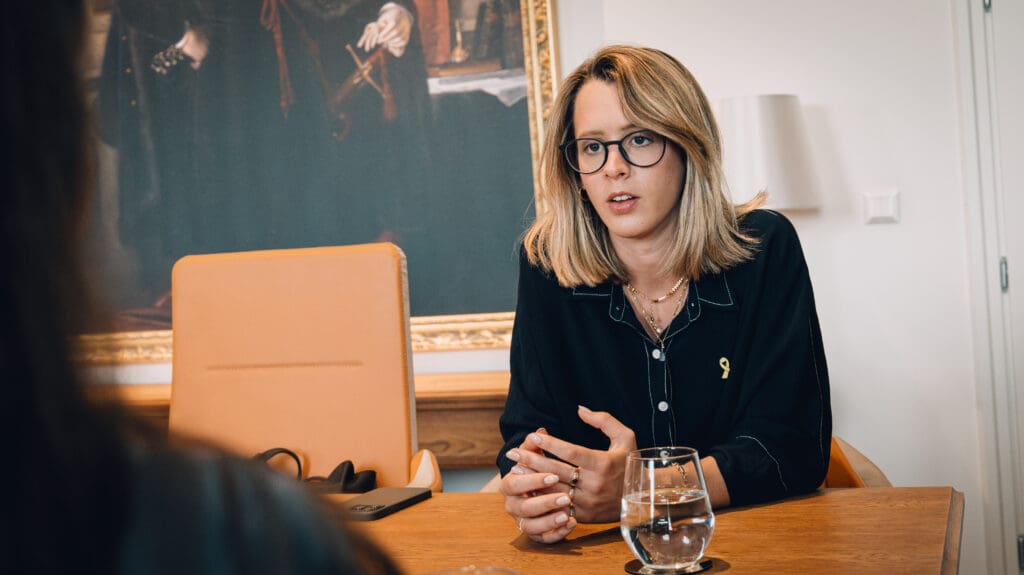
Secondly, I think that Israel understands not only the humane side operationally, but also that it’s important to allow more and more humanitarian aid to enter because our goal is to eliminate Hamas and not to harm the people of Gaza, as much as that is possible. IDF understands the importance of it. I think that it’s very difficult because we are trying to do what we can on our side to facilitate aid coming in, and there are new initiatives all the time that we work very hard on to allow them to happen. However, the main problem is that we’re only hoping that the aid gets to the right hands, and unfortunately, Hamas, over and over again, takes control of these aid trucks, fires at aid crossings, and uses these opportunities to take this aid for terror purposes or just not allow it to get to the people.
The Danube Institute organized an event titled ‘Sexual Violence in Israel and Gaza on October 7 and Beyond: Impact, Denial and Silence’ on 21 May, where you also delivered an important speech. The event grew out of Danube Institute’s fieldwork in Jordan, Israel, and the West Bank, where neither Muslims nor Christians were willing to believe that any sexual violence took place on 7 October. How can the evidence of what took place in the kibbutzim and in and around the music festival be made public, and is it possible to convince not only the Arab world but also the Western world about what really happened?
I think that the main reason people don’t believe it is because they don’t want to believe it. If a person knows that there’s footage and doesn’t watch it, they’re responsible for spreading a false narrative because they’re not seeing everything that they have to see in order to have an opinion about it. If they have seen the footage and still do not believe, it is because they’re not willing to believe that this is something that humans can do. What we’re trying to do is also work in cooperation with the Israeli government, the police, and embassies around the world to spread the story and collect evidence.
Regarding the denial of the Western world, I think that many people are uneducated on this topic and are not exposing themselves to everything they should or can. I just watched the Screams Before Silence documentary again, which, in my opinion, is a documentary that every single person in the world needs to watch, and then they can have an opinion about what happened. However, many of these people don’t even want to learn about 7 October to that extent. That’s why we see great importance in spreading the truth, sticking to the truth, and not allowing any false stories or evidence to come from our end. I hope that it will make a difference.
As also reported by Hungarian Conservative, although foreign pro-Palestinian protestors attempted to sabotage our event on the sexual violence Hamas has perpetrated, they failed to silence your speeches. The event illustrated the crucial difference between the two sides: while you and other Israeli advocates presented arguments intelligently and peacefully, and even when you were shouted at answered the questions, the Palestinian protesters had no substantive arguments; instead, they shouted anti-Semitic slogans full of hatred to try to silence you and the other Israeli speakers and those who support them. Could you elaborate on why anti-Semitism is growing among these pro-Palestinian mobs globally?
I wish that people who engage in this type of conversation would be willing to educate themselves and hear all sides. Hate won’t solve our problems, but conversation and discussion might. In different circumstances, I would love to sit for a coffee with the protesters at the event. At the end of the day, everyone has the right to speak up for what they believe in. However, the way we communicate those beliefs needs to change.
Lastly, what does Zionism mean to you, and how do you see the future for your own generation and the generations to follow in Israel?
I get along with the general dictionary definition of Zionism, which is the understanding that Jews have the right to their own country and to be safe in their own country. Yet I think that it’s even a little more than that because I don’t only take it from the Jewish perspective, in which case, it means the right to have a homeland where you’re safe, whether you’re Jewish, Christian, or Muslim, to have the grounds that you were born in, where you were rooted in and to know that you will fight and you will advocate for having those grounds. I don’t think that Zionism is specifically only for Jews; in my view, it’s the understanding that the State of Israel is a state for everyone and that it’s here to stay.
Related articles:

